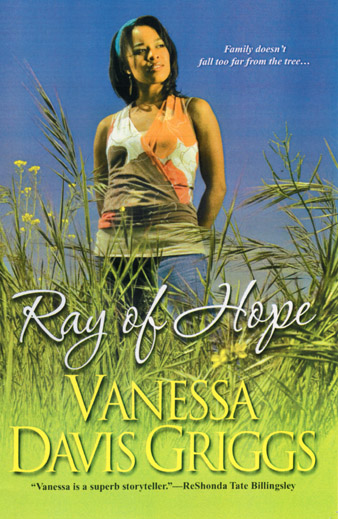 It is time for a FIRST Wild Card Tour book review! If you wish to join the FIRST blog alliance, just click the button. We are a group of reviewers who tour Christian books. A Wild Card post includes a brief bio of the author and a full chapter from each book toured. The reason it is called a FIRST Wild Card Tour is that you never know if the book will be fiction, non~fiction, for young, or for old...or for somewhere in between! Enjoy your free peek into the book!
It is time for a FIRST Wild Card Tour book review! If you wish to join the FIRST blog alliance, just click the button. We are a group of reviewers who tour Christian books. A Wild Card post includes a brief bio of the author and a full chapter from each book toured. The reason it is called a FIRST Wild Card Tour is that you never know if the book will be fiction, non~fiction, for young, or for old...or for somewhere in between! Enjoy your free peek into the book!You never know when I might play a wild card on you!
Today's Wild Card author is:
and the book:
St. Martin's Press (September 29, 2009)
ABOUT THE AUTHOR:
 BYRON PITTS was named a contributor to 60 Minutes and chief national correspondent for CBS News in Jan. 2009. Pitts was one of CBS News' lead reporters during the 9/11 attacks and won a national Emmy award for his coverage. As an embedded reporter covering the Iraq War, he was recognized for his work under fire within minutes of the fall of the Saddam statue. Other major stories covered by Pitts include the Chicago train wreck in 1999, for which he received a national Emmy Award, Hurricane Katrina, the war in Afghanistan, the military buildup in Kuwait, the Elian Gonzalez story, the Florida Presidential recount, and the refugee crisis in Kosovo. He garnered recognition as NABJ Journalist of the Year Award in 2002 for his coverage of the 9/11 attacks. He is also the recipient of four Associated Press Awards and six regional Emmy Awards. Pitts graduated from Ohio Wesleyan University with a B.A. in journalism and speech communication. He lives with his wife in Montclair, N.J.
BYRON PITTS was named a contributor to 60 Minutes and chief national correspondent for CBS News in Jan. 2009. Pitts was one of CBS News' lead reporters during the 9/11 attacks and won a national Emmy award for his coverage. As an embedded reporter covering the Iraq War, he was recognized for his work under fire within minutes of the fall of the Saddam statue. Other major stories covered by Pitts include the Chicago train wreck in 1999, for which he received a national Emmy Award, Hurricane Katrina, the war in Afghanistan, the military buildup in Kuwait, the Elian Gonzalez story, the Florida Presidential recount, and the refugee crisis in Kosovo. He garnered recognition as NABJ Journalist of the Year Award in 2002 for his coverage of the 9/11 attacks. He is also the recipient of four Associated Press Awards and six regional Emmy Awards. Pitts graduated from Ohio Wesleyan University with a B.A. in journalism and speech communication. He lives with his wife in Montclair, N.J.Visit the author's Facebook Fan Page.
Product Details:
List Price: $24.99
Hardcover: 304 pages
Publisher: St. Martin's Press (September 29, 2009)
Language: English
ISBN-10: 0312577664
ISBN-13: 978-0312577667
AND NOW...THE FIRST CHAPTER:

New York City
“In five, four, three, two . . .” This wasn't the first time a floor director had ever counted me down, but it was the first time I ever choked back tears. It was August 25, 2006, my first on-camera studio open for the CBS News broadcast 60 Minutes. Moments earlier I'd been in makeup with famed artist Riccie Johnson. She'd done up the likes of Mike Wallace, Harry Reasoner, Morley Safer, Dan Rather, Ed Bradley, Lesley Stahl, Steve Kroft, and every other big-name correspondent who ever worked for 60 Minutes. And the Beatles. And now she was putting powder on me.
Executive Producer Jeff Fager poked his head in the dressing room, "Good luck, Brotha! You've come a long way to get here. You've earned it." I think Jeff was talking about my ten years of covering hurricanes, tornadoes, politics, the September 11 disaster, wars in Afghanistan and Iraq, and every other sort of story for CBS News during those years.
If he only knew. My mind flashed back to elementary school, when a therapist had informed my mother, "I'm sorry, Mrs. Pitts, your son is functionally illiterate. He cannot read."
Months earlier, another so-called expert had suggested I was mentally retarded. Perhaps there was a "special needs" program right for me. Here I was some three decades later sitting in the "special" chair of the most revered show in the history of broadcast news. Musicians dream of playing Carnegie Hall, astronauts work a lifetime to take their first mission in space, and every broadcast journalist worth his or her salt dreams of 60 Minutes.
Engineers generally keep television studios icy cold to prevent the equipment from overheating. The 60 Minutes studio is no different. But in this age of high-tech sets with massive video walls and graphic trickery, Studio 33, where 60 Minutes is taped, looks more like a throwback. You can almost smell the cigar smoke from decades past. Black-covered walls. Bright lights hanging from the ceiling. There’s one camera and one chair. As a correspondent, you sit in the chair, cross your legs, look into the camera, and tell a story.
"Take two. In three, two, one!"
Seven takes later I finally recorded one that everybody liked. It took a while—not so much to settle my nerves as to get everyone settled in that one chair. Sitting with me were my mother, Clarice Pitts; my grandmother, Roberta MaeWalden; my sister, Saundra; and my brother, Mac. We had made the journey as a family, with the help of a few friends and even a few strangers.
What an overwhelming feeling it was and the symbolism was not lost on me.
That afternoon, to all who could see, I was seated alone. But I knew better. Some thirty-seven years before I would ever hear the phrase "Step Out on Nothing," God was writing those words to cover my life. How many times has each of us been in a difficult place and thought we were alone? Standing on nothing. Perhaps it is only in the empty space of those moments we can truly feel God's breath at our necks. His hands beneath our feet. Step out on nothing? Yes. Step out on faith.
So where did I get the title for this book? Step Out on Nothing. What does it mean and how does it fit into my life? Most important, how do you find the courage to try it?
I first heard those fateful words on a Sunday in March of 2007, Women's Day at St. Paul Baptist Church in Montclair, New Jersey. My wife was excited. She'd helped with the weekend program. Me, not so much. As usual I was running late for service and she was getting annoyed. We arrived at church in time. The place was packed. Women all dressed in white and black. The guest preacher that morning was Reverend Benita Lewis. She began her sermon by talking about the pain women will endure to be beautiful. She talked about pedicures, high-heeled shoes, and women's sore feet. I thought to myself, This is going to be a long service. Nothing here for me. And it got worse. She moved from pedicures to massages and spa treatments. Body wraps to skin treatments. At that point I was drifting away. It felt as if we'd been in church for hours. But Reverend Lewis was just warming up, and I soon discovered that she wasn't speaking only to the women in the congregation. She was telling all of us about overcoming pain and obstacles in our paths. She was talking about a belief in God, a faith so strong that anything is possible. Then Reverend Lewis uttered four words that took my breath away. "Step out on nothing." She encouraged the congregation to "step out on faith" in this journey we call life. To put your life and its challenges in God's hands. To believe in a power greater than yourself.
Step out . . . on nothing . . .
In the time it takes to say those four words, a lifetime flashed before me. She was speaking about my life. How had I overcome my childhood inability to read when I was nearly a teenager? It was my mother stepping out on nothing, despite the doubts she must have had during the nights around the kitchen table when I "just wasn't getting it."
And how do you explain an inner-city kid who stuttered until he was twenty years old becoming a network television news correspondent? Let's start with a college professor who didn't even know my name. She stepped out on nothing and believed in a young man who didn't believe in himself.
Then there's Peter Holthe: a stranger. A college classmate from Minnetonka, Minnesota. "Why's your vocabulary so limited?" he asked. He stayed around to find out why and helped expand it.
Those Franciscan Friars at Archbishop Curley High School in Baltimore, Maryland, who heard I was in a gospel choir at a church across town. These were white men who'd never ventured into a black neighborhood or set foot in a Baptist church. They too stepped out on nothing, figuring that being supportive of one of their students after hours might actually make a difference in his life.
We all have those defining moments in our lives. Moments of great joy. Moments of unspeakable sadness and fear. We usually think we're alone. But if we look into the corners of our memories, we'll find them—those people who had faith in us. Those times when a grace beyond earthly understanding touches us.
This is a story of those times. Those people. And the lessons they taught me. We've all had such people in our lives. If not, it's time to find them.
And for me, this story is my "step out on nothing," revealing a childhood shame that I've hidden from all but those who are closest to me, in hopes that my leap of faith will inspire some young child, or even an adult, who is living with a secret. It took me years to discover my shame was actually a source of strength.
“In five, four, three, two . . .” This wasn't the first time a floor director had ever counted me down, but it was the first time I ever choked back tears. It was August 25, 2006, my first on-camera studio open for the CBS News broadcast 60 Minutes. Moments earlier I'd been in makeup with famed artist Riccie Johnson. She'd done up the likes of Mike Wallace, Harry Reasoner, Morley Safer, Dan Rather, Ed Bradley, Lesley Stahl, Steve Kroft, and every other big-name correspondent who ever worked for 60 Minutes. And the Beatles. And now she was putting powder on me.
Executive Producer Jeff Fager poked his head in the dressing room, "Good luck, Brotha! You've come a long way to get here. You've earned it." I think Jeff was talking about my ten years of covering hurricanes, tornadoes, politics, the September 11 disaster, wars in Afghanistan and Iraq, and every other sort of story for CBS News during those years.
If he only knew. My mind flashed back to elementary school, when a therapist had informed my mother, "I'm sorry, Mrs. Pitts, your son is functionally illiterate. He cannot read."
Months earlier, another so-called expert had suggested I was mentally retarded. Perhaps there was a "special needs" program right for me. Here I was some three decades later sitting in the "special" chair of the most revered show in the history of broadcast news. Musicians dream of playing Carnegie Hall, astronauts work a lifetime to take their first mission in space, and every broadcast journalist worth his or her salt dreams of 60 Minutes.
Engineers generally keep television studios icy cold to prevent the equipment from overheating. The 60 Minutes studio is no different. But in this age of high-tech sets with massive video walls and graphic trickery, Studio 33, where 60 Minutes is taped, looks more like a throwback. You can almost smell the cigar smoke from decades past. Black-covered walls. Bright lights hanging from the ceiling. There’s one camera and one chair. As a correspondent, you sit in the chair, cross your legs, look into the camera, and tell a story.
"Take two. In three, two, one!"
Seven takes later I finally recorded one that everybody liked. It took a while—not so much to settle my nerves as to get everyone settled in that one chair. Sitting with me were my mother, Clarice Pitts; my grandmother, Roberta MaeWalden; my sister, Saundra; and my brother, Mac. We had made the journey as a family, with the help of a few friends and even a few strangers.
What an overwhelming feeling it was and the symbolism was not lost on me.
That afternoon, to all who could see, I was seated alone. But I knew better. Some thirty-seven years before I would ever hear the phrase "Step Out on Nothing," God was writing those words to cover my life. How many times has each of us been in a difficult place and thought we were alone? Standing on nothing. Perhaps it is only in the empty space of those moments we can truly feel God's breath at our necks. His hands beneath our feet. Step out on nothing? Yes. Step out on faith.
So where did I get the title for this book? Step Out on Nothing. What does it mean and how does it fit into my life? Most important, how do you find the courage to try it?
I first heard those fateful words on a Sunday in March of 2007, Women's Day at St. Paul Baptist Church in Montclair, New Jersey. My wife was excited. She'd helped with the weekend program. Me, not so much. As usual I was running late for service and she was getting annoyed. We arrived at church in time. The place was packed. Women all dressed in white and black. The guest preacher that morning was Reverend Benita Lewis. She began her sermon by talking about the pain women will endure to be beautiful. She talked about pedicures, high-heeled shoes, and women's sore feet. I thought to myself, This is going to be a long service. Nothing here for me. And it got worse. She moved from pedicures to massages and spa treatments. Body wraps to skin treatments. At that point I was drifting away. It felt as if we'd been in church for hours. But Reverend Lewis was just warming up, and I soon discovered that she wasn't speaking only to the women in the congregation. She was telling all of us about overcoming pain and obstacles in our paths. She was talking about a belief in God, a faith so strong that anything is possible. Then Reverend Lewis uttered four words that took my breath away. "Step out on nothing." She encouraged the congregation to "step out on faith" in this journey we call life. To put your life and its challenges in God's hands. To believe in a power greater than yourself.
Step out . . . on nothing . . .
In the time it takes to say those four words, a lifetime flashed before me. She was speaking about my life. How had I overcome my childhood inability to read when I was nearly a teenager? It was my mother stepping out on nothing, despite the doubts she must have had during the nights around the kitchen table when I "just wasn't getting it."
And how do you explain an inner-city kid who stuttered until he was twenty years old becoming a network television news correspondent? Let's start with a college professor who didn't even know my name. She stepped out on nothing and believed in a young man who didn't believe in himself.
Then there's Peter Holthe: a stranger. A college classmate from Minnetonka, Minnesota. "Why's your vocabulary so limited?" he asked. He stayed around to find out why and helped expand it.
Those Franciscan Friars at Archbishop Curley High School in Baltimore, Maryland, who heard I was in a gospel choir at a church across town. These were white men who'd never ventured into a black neighborhood or set foot in a Baptist church. They too stepped out on nothing, figuring that being supportive of one of their students after hours might actually make a difference in his life.
We all have those defining moments in our lives. Moments of great joy. Moments of unspeakable sadness and fear. We usually think we're alone. But if we look into the corners of our memories, we'll find them—those people who had faith in us. Those times when a grace beyond earthly understanding touches us.
This is a story of those times. Those people. And the lessons they taught me. We've all had such people in our lives. If not, it's time to find them.
And for me, this story is my "step out on nothing," revealing a childhood shame that I've hidden from all but those who are closest to me, in hopes that my leap of faith will inspire some young child, or even an adult, who is living with a secret. It took me years to discover my shame was actually a source of strength.



















